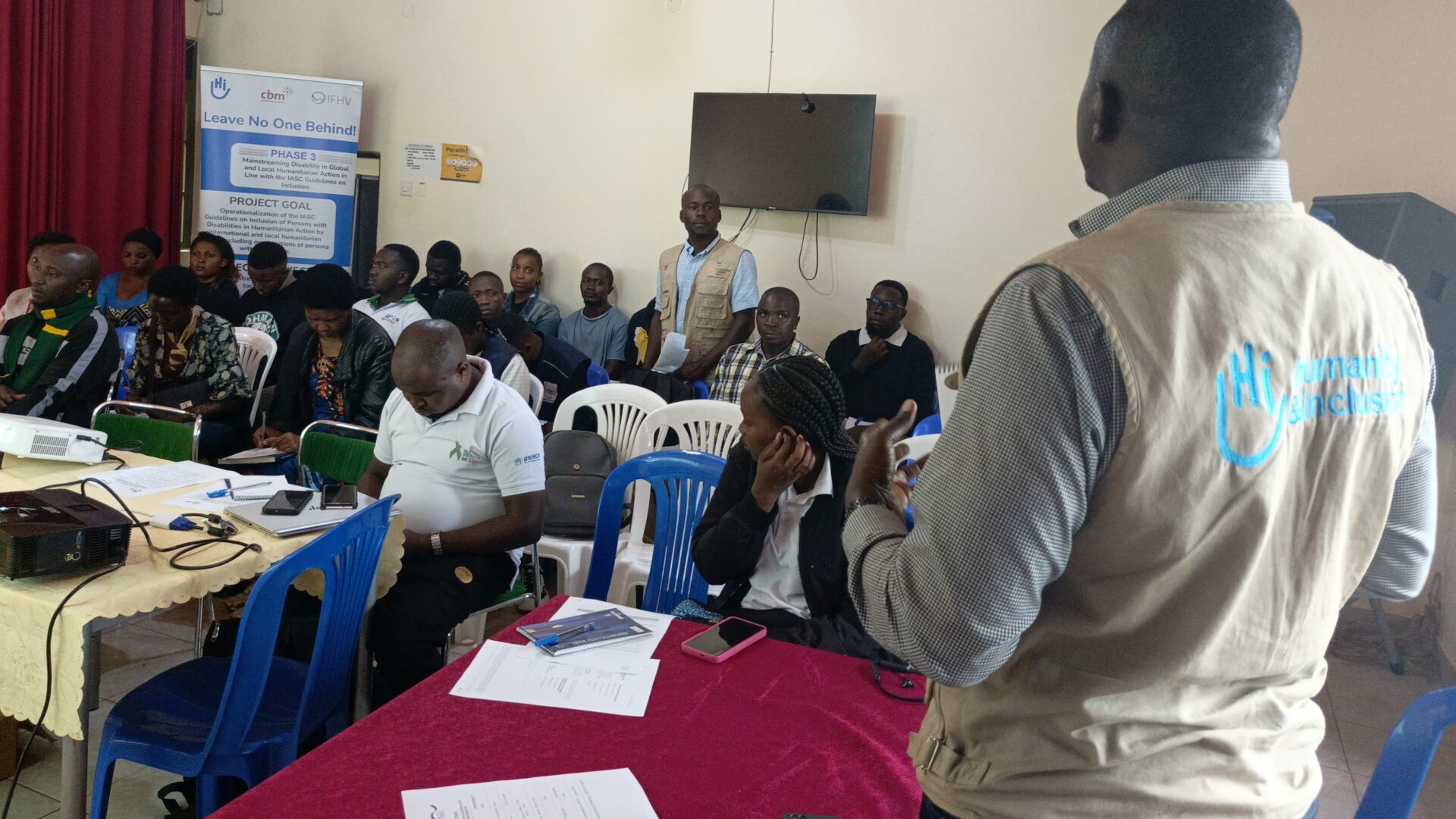Uganda Concludes Phase 3-Leave no one behind! Project
Category
Capacity Building IASC-Guidelines Pilot Countries
© HI
The conclusion of the Phase 3 was marked by two impactful workshops held in Kampala and Kyaka. The workshops were attended by 115 participants, with 31 persons with disabilities contributing firsthand experiences and expertise. The event witnessed a balanced gender representation and participation from 23 Organisations of Persons with Disabilities (OPDs) and 25 partner organizations, underscoring the inclusivity and collaborative spirit of the project.
The workshops in Kampala set the tone with vibrant discussions on the progress made under the project. Participants shared insights, evaluated the impact of disability inclusion initiatives, and brainstormed sustainable approaches for the future. Key among the conversations was the role of OPDs as catalysts for change. It was emphasized that OPDs active involvement must extend across all phases of humanitarian action, from preparedness to monitoring and evaluation.
In Kyaka, the focus shifted to local-level engagement in which the discussions highlighted the importance of creating inclusive spaces, not only in terms of physical infrastructure but also through the development of accessible referral systems and service delivery tools. Participants shared stories of transformation within their communities, illustrating how small but deliberate actions—such as equipping field offices with ramps and improving access to information—can profoundly impact lives.
Both workshops celebrated the strides made in advancing disability inclusion. Many organizations shared success stories of adapting their policies and practices to reflect the principles outlined in the Inter-Agency Standing Committee (IASC) Guidelines on Inclusion giving examples of the Must Do Actions of removing barriers where offices have become more accessible, partnerships between OPDs and humanitarian actors is deepening, and inclusion becoming a recurring theme in conversations across various sectors. Actions towards raising awareness, sparking meaningful dialogue, and inspirations being carried forward.
However, the workshops also served as a platform for honest reflection on persistent challenges. A recurring concern was the lack of resources—both financial and technical—needed to sustain and scale disability inclusion efforts. Many organizations struggled to employ persons with disabilities due to constrained budgets, while others grappled with limited understanding of inclusion principles. The infrastructure in several communities remained largely inaccessible, underscoring the need for structural investments to support inclusion.
Despite these hurdles, the workshops concluded on a high note with partners committing and placing strong emphasis on building the capacity, fostering inter-agency collaboration, and ensuring disability inclusion becomes a core component of all their humanitarian initiatives, and documenting progress through robust monitoring and evaluation frameworks.
The energy, attendance and optimism that filled the rooms were a testament to the collective commitment of all stakeholders. Government representatives reaffirmed their dedication to creating inclusive policies. Government, OPDs and humanitarian partners pledged to strengthen their collaboration. Participants left with a shared vision where humanitarian action in Uganda fully embraces and empowers persons with disabilities, ensuring their voices are heard, their needs are met, and their rights are protected.
Through collaboration, advocacy, and innovation, Uganda is setting a example for inclusive humanitarian action, proving that leaving no one behind is not just a goal—it is a shared responsibility.
Written by Victor ALOCHI/ HI Uganda